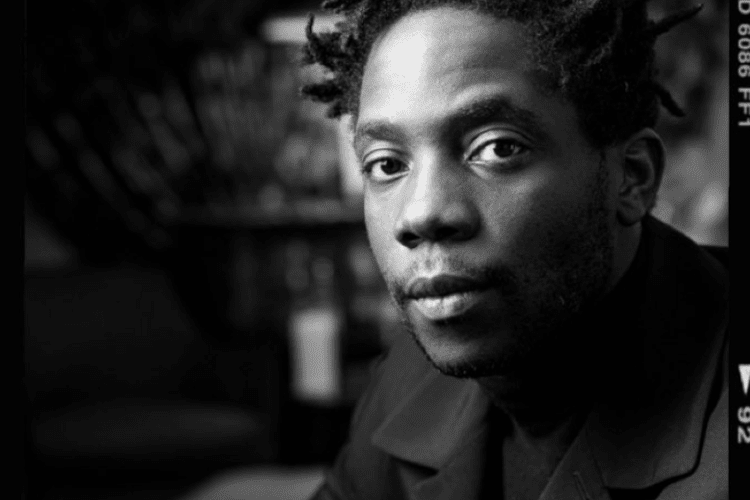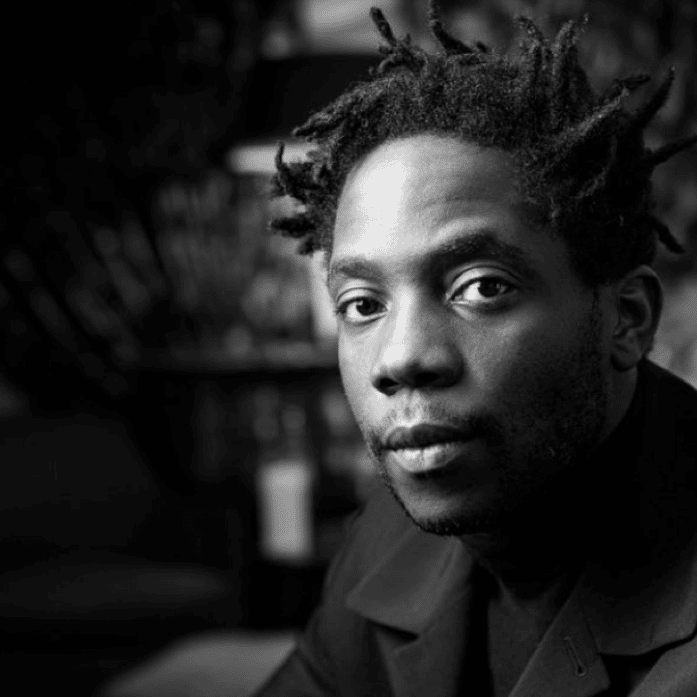
Makita Samba is part of the ensemble of young actors taking the lead in Jacques Audiard’s Paris, 13th District. He gives a star making performance as Camille, a live-by-the-moment handsome man who tries to navigate the shifting relationships between four young adults. Julien Planté interviewed Makita Samba for the first issue of A Rabbit’s Foot dedicated to French cinema.

JP: You dazzled in Paris, 13th District and have been nominated for the Césars. How did this happen, and how did you get the opportunity to star in the film?
MS: The role emerged from observations made in the street. I was performing at the theatre at that time, in an adaptation of One Thousand and One Nights. I met a look of boys who looked like my character Camille. I made myself available during the play, because I felt there was a film project about materialise. The character suited me: thirtysomething, literate, single…looking for something. Soon the Casting Director called and it happened.
JP: So your background is in theatre?
MS: Yes. In public theatre, notably plays by Shakespeare, Calderon, James Baldwin…I have worked with great auteurs. I left the Conservatoire 5 years ago, or rather 6…I forget with the lockdown. That time counted for nothing. But now, my dreams lie in cinema.
JP: You are from Paris. Were you familiar with the 13th arrondissement before filming?
MS: No, I actually didn’t know the district. It is a place that seems new, and came out of nowhere.
JP: Were you very familiar with Jacques Audiard’s films?
MS: Of course. I knew his films well. A Prophet came out while I was studying at the theatre, and it made an impression. I then watched his love stories in preparation before filming and also – and especially – Read My Lips, where the two main characters of the film seek to speak to each other. It is these verbal contests in his works that interest me.
JP: Can you tell me what he is like to work with? Do you get much room to improvise?
MS: We rehearsed for a very long time, because he never stops working. The script was excellent from my first reading but it kept being tweaked and updating, depending on how he felt. He wants to do things properly. During the shoot, I won’t say that it is improvisation, but he leaves space for invention. Not that the actors are there to freestyle, but there were days when multiple options were available for either side to express. It’s surprising working with Jacques Audiard. He’s a great creator – unafraid to stage new stories. He never tells the same story twice.
JP: Where did you get the inspiration to build your character?
MS: The scenes and dialogues were so well written, it is like a musical score. Then you just have to know how to read and play the notes. Jacques works a lot by ear when directing actors. Sometimes we had to adapt to make it sound right. That was the job: to learn how to play the music. For example, the times when Emilie speaks Chinese, it was not easy. At other times, we don’t know how Jacques will use certain takes during the editing. For example, when my character is with Nora in the real estate office, she says, “he’s very bright” while talking about an apartment, while there is a close-up of me – and I had no idea that this dialogue would be used as well. This moment was not written. It was re-written behind-the-scenes by Jacques.
JP: What about Camille did you feel that brought you closer to his character?
MS: I liked that Camille knows how to speak. Coming from the theatre, and appreciating texts, I like his relationship to language. And then he could also be sometimes arrogant, at other times, pleasant… It’s all due to his mastery of language and words.
JP: You worked closely with Lucie Zhang and Noémie Merlant. Have you developed special ties with them? Was that important when shooting?
MS: You have to know how to trust yourself first. It’s true that if we were on another shoot together, we would trust each other immediately. If we found these characters again in twenty years perhaps, we would know very well how to speak to each other…how to look at one another.





